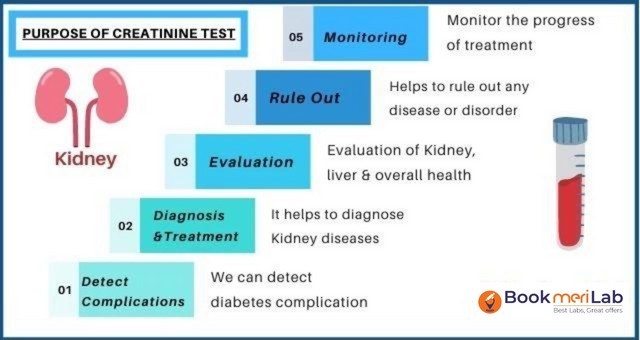Before administering an antibiotic that can cause nephrotoxicity, which laboratory value is most important for the practical nurse (PN) to review?
White blood cell count (WBC).
Serum creatinine.
Hemoglobin and Hematocrit.
Serum calcium
The Correct Answer is B
The correct answer is choice B, Serum creatinine. Choice A rationale:
The white blood cell count (WBC) is an important parameter for assessing the body's immune response to infections. While it can provide valuable information about the presence of an infection, it is not directly related to nephrotoxicity. Therefore, it is not the most important laboratory value to review before administering an antibiotic that can cause nephrotoxicity.
Choice B rationale:

Serum creatinine is a crucial laboratory value to assess kidney function. It is a waste product that is filtered by the kidneys, and its level in the blood is a reliable indicator of kidney function. If the serum creatinine level is elevated, it suggests impaired kidney function, which can be a warning sign of nephrotoxicity. Reviewing the serum creatinine level before administering nephrotoxic antibiotics is essential to ensure that the client's kidneys are functioning adequately and to avoid potential harm.
Choice C rationale:
Hemoglobin and hematocrit are indicators of the client's red blood cell count and blood's oxygen-carrying capacity. While these values can provide information about the client's overall health status, they are not directly related to nephrotoxicity. Therefore, they are not the most important laboratory values to review in this particular scenario.
Choice D rationale:
Serum calcium levels are essential for assessing bone health, nerve function, and muscle contractions. However, they are not directly related to nephrotoxicity, and reviewing serum calcium levels alone would not provide sufficient information about kidney function. Hence, it is not the most critical value to review before administering nephrotoxic antibiotics
Nursing Test Bank
Naxlex Comprehensive Predictor Exams
Related Questions
Correct Answer is C
Explanation
The correct answer is Choice C. Place the ID bands on the infant and mother.
Choice A rationale:
While obtaining the infant's vital signs is important, it is not the priority action before transporting the baby to the nursery. Placing ID bands on the infant and mother ensures proper identification and prevents mix-ups during transportation, which is crucial in the nursery setting.
Choice B rationale:
Administering vitamin K injection is also essential but not the immediate priority before transporting the baby. Vitamin K administration helps prevent bleeding disorders in newborns, but ensuring proper identification and security come first.
Choice C rationale:
The correct choice. Placing ID bands on the infant and mother is the most important action before transporting the baby to the nursery. This step ensures accurate identification and matching between the baby and the mother, preventing any confusion or errors in the hospital setting.
Choice D rationale:
Observing the infant latching onto the breast is important for promoting breastfeeding, but it can be done after ensuring proper identification and safety measures have been taken.
Correct Answer is B
Explanation
Choice A rationale:
The risk of infection is not the priority nursing problem in this scenario. While the darkened membranes and smoky breath may be indicative of potential infection, addressing ineffective airway clearance is more urgent as it directly impacts the client's breathing and oxygenation.
Choice B rationale:
Ineffective airway clearance should be the priority nursing problem. Darkened membranes of the mouth and smoky breath suggest possible inhalation injury or airway obstruction.
Maintaining a patent airway is crucial for adequate oxygenation and to prevent further complications.
Choice C rationale:
Acute pain is not the priority nursing problem in this case. Although it is essential to address any discomfort the client may be experiencing, it takes a back seat to the more critical issue of ineffective airway clearance.
Choice D rationale:
Disturbed body image is not the priority nursing problem when the client has darkened mouth membranes and smoky breath. While it is important to address body image concerns, the immediate focus should be on managing and improving the client's airway clearance.
Whether you are a student looking to ace your exams or a practicing nurse seeking to enhance your expertise , our nursing education contents will empower you with the confidence and competence to make a difference in the lives of patients and become a respected leader in the healthcare field.
Visit Naxlex, invest in your future and unlock endless possibilities with our unparalleled nursing education contents today
Report Wrong Answer on the Current Question
Do you disagree with the answer? If yes, what is your expected answer? Explain.
Kindly be descriptive with the issue you are facing.
